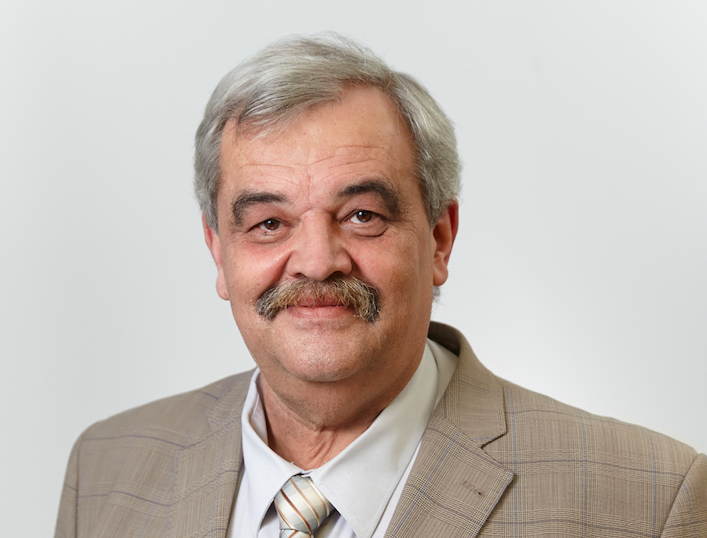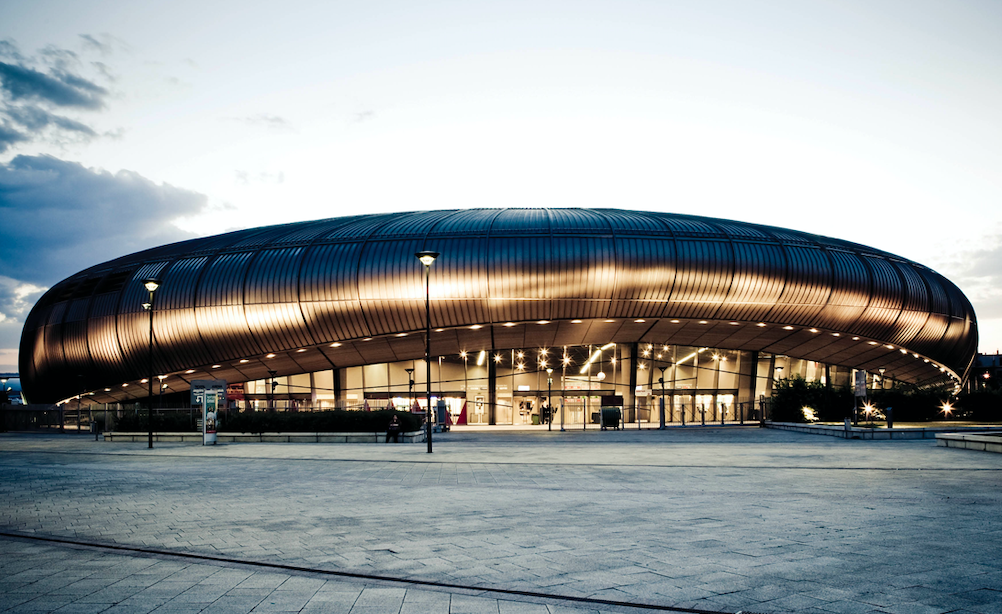Head of Sportaréna hopes concerts will resume at the end of August
EnglishAlthough we are aware that mass events are expected to be permitted only in the last phase of easing the restrictions, we hope that we will be able to restart in the autumn and reach half a million visitors this year, said Gyula Szloboda in an interview with Növekedés.hu. We also asked the managing director of Papp László Budapest Sportaréna how they are affected by the pandemic, when they can make up for cancelled events and how they help the Red Cross.
More than 20 years ago, the previous building of the successful institution you have been in charge of for years burned down in a disastrous fire. The new building has been in operation in its current form since 2003 and was named after one of our most famous Olympians, László Papp, in 2004. Have you experienced similar mandatory shutdown during the 17-year history of the institution?
There has never been a mandatory lockdown in Budapest Sportaréna before, and the pandemic has created a totally unexpected situation for us just as for all other players in the economy. At the time the ban on mass events was announced, there was an event going on in the arena, so we were watching the news together with the organizer, and we had to act immediately. As a result, we could only have the first day of the exhibition and on the second day of the event we already had to start the demolition works.
On the following Monday our team transitioned to working from home, with the exception of the technical team, of course, who are carrying out maintenance works in the building in this ‘empty period’, following all proper health and safety rules, of course.

Budapest Sportaréna works well if it can provide a safe and civilized environment for the general public as a high-quality event venue. In the current situation, we believed that it might be given a new functionality. When the ban on all events was announced, with the consent and approval of the owner of the arena BMSK Zrt, and the Minister without Portfolio responsible for national property, Gránit-Pólus Group immediately offered it to the Operational Staff for free use. Finally, the Hungarian Red Cross was offered the designated areas of the arena for storage purposes.
When do you expect Lara Fabian, Celine Dion and Kiss to come to Hungary? When are the cancelled Apostol or Republic 30 concerts scheduled? Have foreign performers responded to invitations for autumn gigs yet?
Budapest Sportaréna is not only very successful here at home but also internationally, this can be clearly seen from the names you mentioned. However, success in this market is not achieved by single people. It’s the hard work of a team of 15, typically young people, for whom Sportaréna is not just a workplace. We belong to the Gránit-Pólus Group, therefore one of the keys to our success is that the company management trusts us and gives us a free hand in professional issues.
We maintain good relations with event organizing partners; our rental system is transparent and fair, so they can easily plan in advance. In addition, there are an increasing number of visitors who do not only have the need but also the financial means to visit our programs regularly. The COVID-19 pandemic stopped this positive process.
Of course, after we closed down we immediately started working together with our concert organizing partners to make up for the events that now have been cancelled.

In the case of Hungarian performers, it is slightly easier to agree on a new date, with foreign performers, however, the entire tour route must be redesigned, i.e. the itinerary must be put together considering the calendars of each affected venue.
The good news is that we’ve already found possible new dates for the cancelled concerts - for this autumn, next spring or early next summer - for some performers there are even several alternatives. We have already announced a few new concert dates (e.g. Hauser, Harry Styles) and we hope that the new itineraries of other international performers will be finalized soon, and then we can announce the new dates for those events, too.
The first dates we are planning are August 28-29 with the Apostol and Republic concerts, respectively. Although we are aware that mass events are expected to be permitted only in the last phase of easing the restrictions, we hope that we will be able to restart in the autumn.
In 2018 the 900,000th visitor was welcomed at Budapest Sportaréna. How sharp do you expect the decrease in visitor numbers to be for 2020?
First, let me clarify that a little: Budapest Sportaréna had more than 900,000 visitors in 2018 alone. 2018 was a record breaking year, both in terms of the number of events and also in the number of visitors.
The typical annual visitor number is closer to 700-800 thousand. This year started very strongly, we had several sold-out events, including several double concerts, so in the two and a half months before the mandatory closing the number of visitors was already well over 200,000.
If the arena can reopen in the autumn and programs can resume with many excellent events, we hope that we will be able to bring in half a million visitors despite the current closure.
I suppose an army of subcontractors are working in Budapest Sportaréna before each concert, who come with the artists. However, you certainly have your own staff, as well. Did you have to lay people off? How does ‘home office’ work in your sector?
You’re right, a lot of areas are supervised by subcontractors, but we also have our own staff of 15 people. The transition to home office is area-dependent: bookings, financial and IT tasks or communication with guests (phone, email, facebook) can be done very well from home, while technical jobs have to be done in the arena. The biggest challenge was to reorganize the work of the ticket office and event organizing team, but we managed to find useful and important tasks for them, so they are currently preparing standardized technical drawings, updated info materials and other information materials in Hungarian and in English.
Thanks to all this and the financial stability of Gránit-Pólus Group and its attitude towards the employees, fortunately so far we have managed to retain all our staff.
The mandatory closure causes significant losses, so we hope that we can start again as soon as possible and we won’t be forced to lay off any of our staff.
Have there been consultations with the government on a rescue package for the industry, as various professional organizations have long been negotiating several types of emergency scenarios. Is there a part of the program announced by the government that applies to you as well, since you deal with venue management and event organization?
Unfortunately, the economy protection measures taken so far do not apply to us, despite the complete closure of the arena and the resulting zero revenue, so we contacted the Minister of Finance and the Minister without Portfolio responsible for national property to clarify the situation, but we have not received any feedback yet.
What do you expect from the government?
We hope that our industry can also be one of the subsidized sectors, as the ban on all events has hit market players extremely hard.
Apart from financial support, perhaps one of the most important issues would be to work out specific regulations regarding mass events so as to help the industry set up a safe operating model.
With such a regulation in hand, - accepting, of course, that a possible second wave could overwrite all ideas - the market could already start planning and organizing their activities. As a multifunctional hall, besides providing venues for concerts and sports events, we have exhibitions as well as, so it would be important to know when exhibitions can be organized again, as there the distance between visitors may be even bigger than e.g. in a food store.
According to a recent forecast by HÉTFA Research Institute, each forint that is not spent on a festival will altogether take about 7 forints out of the economy because of the spill over effects, so if this year's festivals are cancelled, the lost revenue of the Hungarian economy could reach almost 1 percent of the GDP. With this in mind, how pessimistic are you regarding the concert market situation and specifically the autumn season, when a potential second wave of the epidemic might break out?
Your question has part of my answer, as these figures speak for themselves. And yet, we are convinced that the right attitude during a lockdown is to start preparing for the restart. Scientists around the world are making huge efforts to find medical solutions to eradicate the virus, and the vast majority of the people accepts and follows the rules that the government and experts recommend so that we can keep the infection to a minimum.
As Hungary took the right measures in time, we have a reason to think positively about the autumn season.
If, however, the pandemic recurs in the autumn, then.... we are in trouble. But I am convinced that after a while we will get through that as well and when our lives can get back to normal, Papp László Budapest Sportaréna will be welcoming visitors again and will continue to be an outstanding player in the event management market.
